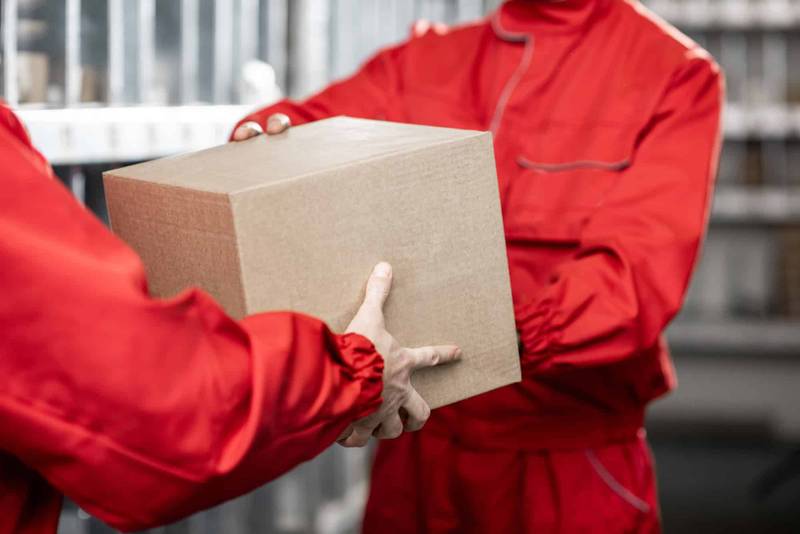Struggling to find eco-friendly solutions for your packaging needs? The environmental impact of traditional tape might surprise you. Many common tapes are not recyclable, but don’t worry—there are recyclable options available that align with sustainable goals.
Yes, recyclable tape does exist, and it comes in several forms, with the most common being paper packing tape. These tapes are designed to reduce environmental impact, making them an excellent choice for businesses and individuals looking to improve their eco-credentials.
Curious to learn more about which tapes can help reduce waste? Keep reading to explore the best options.
Types of Recyclable Tape
1. Paper Packing Tape
This is the most popular recyclable tape option and is often referred to as Kraft tape. Made from paper and water-based adhesives, it’s fully recyclable and can be thrown into the recycling bin along with your cardboard boxes. This means no need to strip the tape from your boxes before disposal, making the process simple and eco-friendly.
• Key Features:
• Made from renewable resources.
• Recyclable with cardboard.
• Biodegradable, making it a highly sustainable option.
Paper packing tape provides a durable seal while minimizing the ecological footprint, making it a top choice for eco-conscious businesses.
2. Biodegradable Tapes
Biodegradable tapes are another great solution for environmentally conscious packaging. These tapes are typically made from plant-based materials or other natural compounds that break down over time, reducing their presence in landfills.
• Key Features:
• Made from natural fibers or starch-based materials.
• Breaks down in a landfill environment.
• Potentially recyclable, depending on local regulations.
Though biodegradable tapes may not be as widely available as paper tape, they are gaining popularity among companies focused on sustainability.
3. Water-Activated Tape (WAT)
Water-activated tape, also known as gummed paper tape, is another eco-friendly choice. It’s made from paper and reinforced with natural fibers like starch. The adhesive is activated by water, providing a strong bond without the need for petroleum-based products.
• Key Features:
• Made primarily from paper.
• Strong, tamper-proof seal.
• Recyclable alongside cardboard boxes (though not all versions are fully recyclable due to added fiberglass).
Despite its strength, water-activated tape is mostly recyclable and offers a more sustainable option compared to plastic-based tapes.
Non-Recyclable Tapes
Not all tapes can be recycled, and it’s important to know which ones to avoid if you’re trying to be more eco-friendly.
Polypropylene (PP) and PVC Tapes
These plastic-based tapes are commonly used for packaging and sealing boxes, but they present a challenge when it comes to recycling.
• Polypropylene Tape: Although it’s used widely due to its strength and affordability, PP tape is not recyclable. It is made from plastic and, when disposed of, contributes to landfill waste.
• PVC Tape: Similar to PP, PVC tape is also non-recyclable and is made from petroleum-based materials, which are not environmentally friendly.
Both polypropylene and PVC tapes can still be used on boxes that will be recycled, as they typically fall off during the recycling process. However, for those seeking more sustainable alternatives, paper and biodegradable options are the way to go.
Frequently Asked Questions
What is the best recyclable tape for packaging?
The best recyclable tape is typically paper packing tape or water-activated tape. These tapes are made from renewable resources and can be recycled easily with cardboard, making them ideal for packaging needs that require an eco-friendly approach.
Are biodegradable tapes the same as recyclable tapes?
No, biodegradable tapes and recyclable tapes are not the same. Biodegradable tapes are designed to break down over time, reducing waste in landfills, while recyclable tapes can be processed through recycling facilities to be made into new products.
Can I recycle tape along with cardboard boxes?
If you are using paper-based packing tape, it can be recycled with your cardboard boxes without needing to remove it. However, if you’re using plastic-based tapes, those tapes generally cannot be recycled and should be separated.
How eco-friendly is water-activated tape?
Water-activated tape is highly eco-friendly due to its paper base and natural adhesive. However, some versions are reinforced with fiberglass for extra strength, which may affect their recyclability. Be sure to check the specific type you’re using.
Are all paper tapes recyclable?
Most paper tapes are recyclable, but it’s essential to verify if they contain additional materials like fiberglass or plastic reinforcements, which could hinder their ability to be processed through recycling facilities.
Why can’t polypropylene and PVC tapes be recycled?
Both polypropylene and PVC tapes are made from synthetic, petroleum-based materials that are difficult to process in standard recycling systems. They can also contaminate recycling batches, making the entire load unusable if mixed with recyclable materials like paper or cardboard.
Conclusion
Recyclable tapes are a great alternative to traditional plastic tapes, with paper-based options leading the way in terms of sustainability. Whether you choose paper packing tape or water-activated tape, these solutions help reduce your environmental impact while still offering reliable performance. Always check local recycling guidelines to ensure you’re using the best option for your area.






